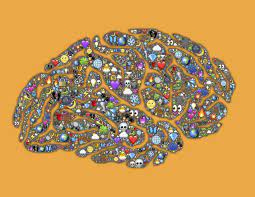And we’re back! Hi friends 👏
Welcome to Issue #52 of Curiosity > Certainty!
I spent this week writing and writing about writing. You’ll see a sample of my thoughts in this issue. Also ended up diving into mindset: sterile or fertile, explore or exploit, finite or infinite. Here’s what was on my mind this week!
Journaling
📔A journal is a fact-checker in your life against the constant propaganda and misinformation spewed by your memory.
A decision journal is a hindsight-bias checker for the evidence that you had at your disposal and what you considered to be most important while making a decision.
A desire journal is a continuity checker for the things you want every day and forget about a day later because you got busy wanting something else you saw somewhere.
A habit journal is an authenticity checker for the behaviors you practice every day and who you claim to be in life.
A gratitude journal is an appreciation checker for the little mercies in your life that you may otherwise have taken for granted.
If you can make time for one tiny habit, let it be the habit of writing. Writing down what you feel, think, want, do, and are thankful for can turn you into the person you want to be. This one tiny habit yields huge results.
Sterile or fertile?
Modern workplaces that depend on creative output to serve customers may be carrying a dated mindset. They may be optimizing for sterile when fertile is what delivers outsized value. Let me explain.
The modern workplace started off as a factory. For two hundred years, it paid off to optimize for efficiency. Rules and standard operating procedures eliminated variation. Zero variation meant maximum efficiency. More efficient manufacturing companies had a competitive edge because the market changed slowly. That is no longer the case now.
The goal of zero variation can make innovative companies lose their ability to respond to a fluid future. Being over-optimized today is being closed off tomorrow. Six Sigma 🎯 today means better processes tomorrow. But what if that business vanishes off your books? You can’t optimize any more for your wedding day if you aren’t ready for unannounced rain.
Reed Hastings (Netflix) describes efficient as sterile and innovative as fertile. Being sterile is very good, but only in the short term, he believes. Fertile beats sterile in a marathon. How to be fertile?
Netflix has no rules, Amazon has two-pizza teams, Google has 20% time off (though that’s scrapped now), Shopify believes in offering employees a world-class user experience at work.
There’s more than one way to go for fertile. And that’s what makes fertile discomforting. You can’t buy its formula off the rack.
Explore or exploit?
A reason for midlife crisis that’s common but rarely acknowledged is that early on in our careers we get busy exploiting without bothering to explore. We go with the first big opportunity. We secure our position, settle down. For a while it works like a charm. Life’s working out just fine. We have a job, a house, annual vacations to the Maldives.
Then inevitably we get a jolt. The world changes, the market turns, the job is excess to needs.
And that’s when we realize, I wish I had explored earlier. Wish I had tried out things, looked around, invested in a broad skill set.
If you’re young, don’t leap too soon. Take some time to look. To figure out who you are and what the world is like.
Computer science sets a precise limit for looking: 37%. Look for the first 37% of the time available to you. Then make a decision and double down. But no reason to complicate with percentages what is a simple idea.
When you’re young you’ve more opportunities to make mistakes. Make them and learn. Don’t be in a rush to cash in. Explore in your youth, exploit in middle age.
Not the other way round.
Tiny thought: Finite versus infinite mindset
A good test for a finite versus infinite mindset is to propose universal basic income. Those with a finite mindset are more likely to go up in arms and point to how it will give the lazy an excuse to continue being lazy. Those with an infinite view of the world are more likely to talk about how it will bring swathes of people up from negative to neutral, from where they can jump off into a world of possibilities thanks to their imagination and creativity.
The former may only just acknowledge the role of luck in their lives (birth, family, country, period) to get them to where they are. The latter may find it hard to get around it.
The former may point at those who have beaten the odds as burning examples and question the drive of those who haven’t. The latter may draw attention to the human potential that could be harnessed if the everyday firefight that is life is out of the way.
***
That’s all for this week. Thank you, dear reader, for adding Curiosity > Certainty to your inbox. Let me know what you made of this issue.



